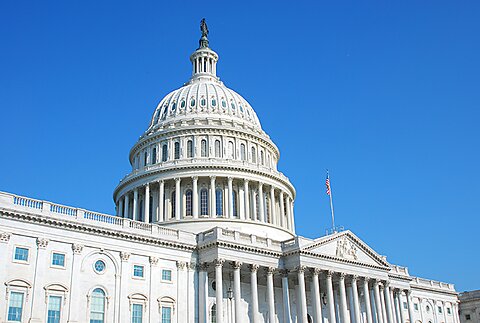
While the timeline for the EU’s Digital Markets Act (DMA) was lengthy, spanning more than three years from proposal to effective date, its impact was immediate on the tech industry in Europe. The seven platforms designated as gatekeepers—Alphabet (Google), Amazon, Apple, Bookings, ByteDance (TikTok), Meta (Facebook), and Microsoft—continue to make significant changes to their services to comply with their obligations. In June 2024, the European Commission decided that Apple’s App Store and Microsoft’s Teams service still did not comply with the obligations of the DMA, hitting each company with the possibility of a fine of 10 percent of their global revenue.
The regulation may have a much farther reach and impact as well. Regulation like the DMA has become the primary form of leverage Europe has in the global tech industry rather than actual companies. Instead of reducing regulation or other barriers that would encourage innovation by companies on its own shores, the region hamstrings its opponents abroad to level the playing field.
As of the end of 2023, six out of the top ten largest tech companies in the world were American, with the top three—Alphabet, Microsoft, and Apple—all headquartered in the US. The largest tech company in Europe by market cap, ASML, a semiconductor supplier, is behind on the list at eleventh place. The market value of the top ten largest tech companies in Europe combined is still less than the market value of Alphabet, Microsoft, or Apple. It is evident that the tech industry in the US and the tech industry in Europe are on two distinct levels in terms of the robustness of large players and their successes. Even with the larger population and larger market Europe provides relative to the US, the region continues to lag.
One likely reason for this difference can be attributed to the cost of compliance in Europe. Eighty-eight percent of global companies say that General Data Protection Regulation (GDPR) compliance alone costs their organization more than a million dollars each year, with 40 percent responding that they invest more than ten million dollars per year. High costs of compliance deter entrants into the market and prevent sizable growth from occurring.
The Digital Markets Act and GDPR are not the origin of this story, but the latest iterations. In 1995, the European Union launched the Data Protection Directive for each member state to incorporate in their internal laws. It applied to any “controller” of data who processes EU data for their services, regardless of where they are located. The directive was broad in its scope, sweeping in application, and cumbersome in its processing and reporting requirements. Meanwhile, the United States around the same time passed the Telecommunications Act of 1996 and the Framework for Global Electronic Commerce in 1997, which are intended to deregulate the telecommunications industry and encourage the private sector to make appropriate choices that would benefit consumers in their services. It’s not surprising that those actions encouraged an acceleration in innovation.
Not only is it difficult for companies to grow large in Europe, but it’s challenging for them to get started. While Europe has more tech startups formed than the United States, tech startups in the US are 40 percent more likely to have secured venture capital funding, and as the startups mature, this disparity grows. This is certainly the story in the AI sector, as annual private investment in AI in the US has outpaced the EU and UK every year since 2013. Venture capitalists themselves are skeptical about the health of the ecosystem, with 70 percent indicating the fundraising environment in Europe is “bad” or “very bad” in a 2023 survey.
A more expensive regulatory regime that leads to less private funding in an already pessimistic private investment market creates more difficulties for any tech startup hoping to become the next superstar in the industry, even if the talent and the desire to innovate is present in the region.
As a result of the Digital Markets Act, companies will have to change the products that led them to a significant market presence in the region, altering the interface and features their users chose. Consumers in Europe now find these kinds of changes outside of their control, and instead under the government’s. After all, the superstars that already exist in the tech industry—the ones the DMA labels as “gatekeepers”—are not hated by consumers in Europe.
From 2015 to 2024, Google’s share in the search engine market has hovered at or around 90 percent in Europe. This decision is not by force, and users understand they have a choice. In a 2020 survey, 87 percent of respondents in Europe said they were satisfied with their choice of search engine. If they were unsatisfied, 67 percent of respondents agreed that it is easy to switch. For Apple, over 101 million users own an iPhone and 23 million own an iPad. Amazon leads the online marketplace in Europe based on the number of visits, registering about 1.3 billion, and there are 408 million monthly active Facebook users. WhatsApp, especially, is extremely popular in Europe.
Unfortunately, consumers in Europe and beyond could see an elimination of some of these popular product options if the gatekeepers decide to pull select services out of the European market entirely because of high costs. This could also impact consumers more globally if companies must change their products entirely or choose not to pursue features that would not be allowed in Europe.
Consumers are frustrated with the visible changes that alter their user experience. For instance, Apple’s parental control feature “Ask to Buy” operates through the iOS App Store but, because of the DMA, apps can choose a third-party marketplace that does not have the same parental features, leaving parents with less control over the content on their kids’ devices. The disappearance of Google Flight and Google Maps search results has angered users who were used to the convenience.
Overall, nobody is happy about the approaches of the gatekeeper companies to comply with the DMA, even the companies that were the biggest champions of the regulation with supposedly the most to gain.
Beyond consumers, the regulation is already backfiring on the very companies regulators claim to try to help. Since its official implementation, intermediary firms—online services that connect individual product sellers to consumers—that benefit from the services of the gatekeepers because of the large market these companies provide have found that they are not getting the boost they expected from the DMA. For example, when people search for restaurants online, a survey found almost half of all restaurant searches did not leave Google. Nothing indicates this has changed since DMA and instead is costing middlemen companies like TripAdvisor, OpenTable, and Yelp even more traffic than they received before the obligations of the DMA.
The DMA is the latest representation of a divergence in tech policy positions over the decades and shows Europe’s continued attempt to export regulation of America’s leading tech companies. Instead of punishing the US companies for their success, Europe should look to join the US as a fellow proponent of its innovation-first mentality. American policymakers that may look favorably on a regulatory approach can also learn that such an approach has real ramifications for consumers and entrepreneurs of all sizes based on Europe’s experience.



